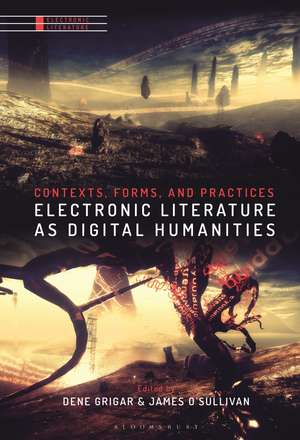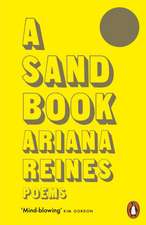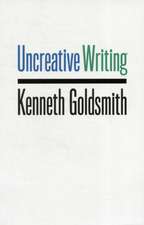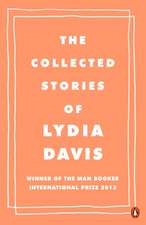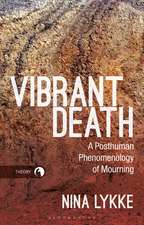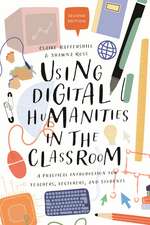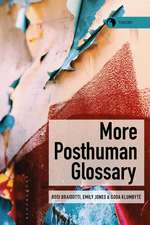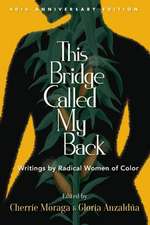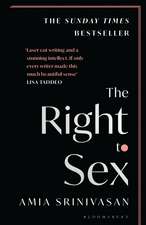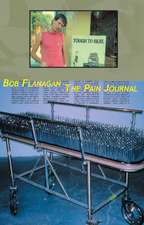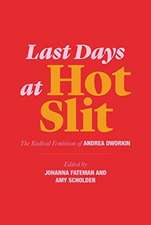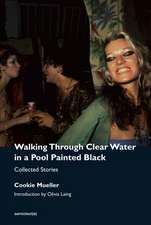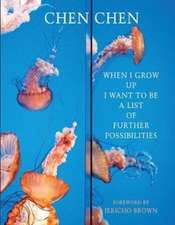Electronic Literature as Digital Humanities: Contexts, Forms, and Practices: Electronic Literature
Editat de Professor Dene Grigar, Dr. James O’Sullivanen Limba Engleză Hardback – 27 ian 2021
| Toate formatele și edițiile | Preț | Express |
|---|---|---|
| Paperback (1) | 201.34 lei 6-8 săpt. | |
| Bloomsbury Publishing – 24 aug 2022 | 201.34 lei 6-8 săpt. | |
| Hardback (1) | 659.89 lei 6-8 săpt. | |
| Bloomsbury Publishing – 27 ian 2021 | 659.89 lei 6-8 săpt. |
Preț: 659.89 lei
Preț vechi: 945.14 lei
-30% Nou
Puncte Express: 990
Preț estimativ în valută:
126.31€ • 137.25$ • 106.17£
126.31€ • 137.25$ • 106.17£
Carte tipărită la comandă
Livrare economică 21 aprilie-05 mai
Preluare comenzi: 021 569.72.76
Specificații
ISBN-13: 9781501363504
ISBN-10: 1501363506
Pagini: 392
Ilustrații: 22 bw illus
Dimensiuni: 152 x 229 x 30 mm
Greutate: 0.69 kg
Editura: Bloomsbury Publishing
Colecția Bloomsbury Academic
Seria Electronic Literature
Locul publicării:New York, United States
ISBN-10: 1501363506
Pagini: 392
Ilustrații: 22 bw illus
Dimensiuni: 152 x 229 x 30 mm
Greutate: 0.69 kg
Editura: Bloomsbury Publishing
Colecția Bloomsbury Academic
Seria Electronic Literature
Locul publicării:New York, United States
Caracteristici
The section on "Forms of Electronic Literature" provides an introduction to each chapter, formatted as a discrete text box, describing each form under discussion, as well as the contributor's biographical notes and an account of his or her scholarly experience and/or record of artistic practice
Notă biografică
Dene Grigar is an Associate Professor and Director of The Creative Media & Digital Culture Program at Washington State University Vancouver, USA. With Stuart Moulthrop, she is the recipient of a 2013 NEH Start Up grant for a digital preservation project for early electronic literature that culminated into an open source, multimedia book for scholars entitled Pathfinders, and a book of criticism entitled Traversals. She was President of the Electronic Literature Organization (2013-2019) and Associate Editor of Leonardo Reviews.James O'Sullivan lectures in digital arts and humanities at University College Cork, Ireland. His research has been published in a variety of venues, including Digital Scholarship in the Humanities. He is the author of Towards a Digital Poetics (2019), as well as the editor of several volumes including Electronic Literature as Digital Humanities (with Grigar, 2021).
Cuprins
About the Editors Electronic Literature as Digital Humanities: An Introduction Dene Grigar Section I Contexts1. The Origins of Electronic Literature: An Overview Giovanna di Rosario, Nohelia Meza, and Kerri Grimaldi 2. Third-Generation Electronic Literature Leonardo Flores 3. Toys and Toons: From Hispanic Literary Traditions to a Global E-Lit LandscapeÉlika Ortega and Alex Saum-Pascual 4. Community, Institution, Database: Tracing the Development of an International Field through ELO, ELMCIP, and CELL Davin Heckman 5. The E-Poetry Festivals: Celebration, Art, and Imagination in CommunityLoss Pequeño Glazier 6. Cyberfeminist Literary Space: Performing the Electronic Manifesto Carolyn Guertin 7. Bodies in E-Lit Astrid Ensslin, Carla Rice, Sarah Riley, Christine Wilks, Megan Perram, Hannah Fowlie, Lauren Munro and K. Alysse Bailey Section II Forms8. Ambient Art and Electronic Literature Jim Bizzocchi9. Electronic Literature and Sound John F. Barber10. Augmented Reality Anne Karhio 11. Artistic and Literary Bots Leonardo Flores 12. Consuming the Database: The Reading Glove as a Case Study of Combinatorial NarrativeTheresa Jean Tanenbaum and Karen Tanenbaum 13. Hypertext Fiction Ever After Stuart Moulthrop 14. Place Taking Place: Temporary Poetic Theaters Judd Morrissey 15. Kinetic Poetry Álvaro Seiça16. Kinepoeia in Animated Poetry Dene Grigar 17. Mobile Electronic Literature Jeneen Naji 18. The Voice of the Polyrhetor: Physical Computing and the (e-)Literature of Things Helen J. Burgess 19. Having Your Story and Eating It Too: Affect and Narrative in Recombinant Fiction Will Luers Section III Practices20. Challenges to Archiving and Documenting Born-Digital Literature: What Scholars, Archivists, and Librarians Need to Know Dene Grigar 21. Holes as a Collaborative Project Graham Allen 22. Publishing Electronic Literature James O'Sullivan 23. E-Lit after Flash: The Rise (and Fall) of a "Universal" Language Anastasia Salter and John Murray 24. Learning as You Go: Inventing Pedagogies for Electronic Literature Davin Heckman Section IV Artist Interventions25. My cODEwORk ARTicle Michael J. Maguire 26. Locative Narrative Jeremy Hight 27. Come Play Netprov!: Recipes for an Evolving PracticeRob Wittig and Mark C. Marino 28. A Collective Imaginary: A Published Conversation Kate Pullinger and Kate Armstrong 29. Addressing Torture in Iraq through Critical Digital Media Art-Hearts and Minds: The Interrogations Project Roderick Coover, Scott Rettberg, Daria Tsoupikova and Arthurh Nishimoto 30. Poetic Playlands: Poetry, Interface, and Video Game EnginesJason Nelson31. A Way Is Open: Allusion, Authoring System, Identity, and Audience in Early Text-Based Electronic LiteratureJudy Malloy Index
Recenzii
This book connects, indeed makes inextricable, the cutting-edge fields of electronic literature and digital humanities. Situating work by pioneers in the field of electronic literature alongside emergent artists and scholars from around the world, the book draws a transversal and provides new ways of approaching born-digital literature through a focus on contexts (social, institutional, theoretical), forms (aesthetic, poetic, medial), and practices (pedagogy, preservation, publishing). This is a book that can be used for teaching students of all levels interested in understanding the current state of literary studies.
As digital humanities scholarship becomes increasingly involved with digital arts and culture, this publication offers a treasure trove of examples of the integration of these fields. In their collection, Electronic Literature as Digital Humanities: Contexts, Forms, and Practices, Dene Grigar and James O'Sullivan have assembled a variety of scholarly approaches to the natural relationship between electronic literature and digital humanities. The essays expand on traditional strategies in humanities research such as deep history, tracing both the print and computer origins of e-lit, and the extent of global presence. The works also examine remarkable instances of digital practice and form. The scope and the specificity of the book make it an excellent resource for researchers.
After Goethe imagined a world literature in formation, Karl Marx predicted its rise, and Franco Moretti mapped its whereabouts, is such a thing realizable at last in digital environments? Is electronic literature, ignored by English Departments and all but a few Creative Writing Programs, ready to be integrated into the Digital Humanities? There is certainly no shortage of candidates for an emerging world literature in this gathering of multi-national talents by Dene Grigar and James O'Sullivan; no shortage of languages, cultural backgrounds, heritage and creative contexts. Emerging genres like Interactive Fiction are said to express a multivariate world mode (Montfort), one that could well replace national one-sidedness and resituate local literatures. We are beginning now to look at literary works written in the form of a computer program. Recombinant, database, codework and network fictions (Seaman, Manovich, Marino, Ciccoricco); collective imaginaries (Pullinger and Armstrong); aesthetic animism (Jhave); nonlinear, nonconscious, affective, and emergent significations (Hayles, Rettberg and Coover); sound no less than sighted texts (Luers). We have here, in this volume, sustained scholarly engagement with locative media, spatial narratives, augmented realities that display an aesthetic, geographical, and linguistic diversity never so apparent in earlier formations of the "Humanities." At the least, there will be (as there have always been) literary suggestions of "some world other than the one we inhabit" (Moulthrop).
As digital humanities scholarship becomes increasingly involved with digital arts and culture, this publication offers a treasure trove of examples of the integration of these fields. In their collection, Electronic Literature as Digital Humanities: Contexts, Forms, and Practices, Dene Grigar and James O'Sullivan have assembled a variety of scholarly approaches to the natural relationship between electronic literature and digital humanities. The essays expand on traditional strategies in humanities research such as deep history, tracing both the print and computer origins of e-lit, and the extent of global presence. The works also examine remarkable instances of digital practice and form. The scope and the specificity of the book make it an excellent resource for researchers.
After Goethe imagined a world literature in formation, Karl Marx predicted its rise, and Franco Moretti mapped its whereabouts, is such a thing realizable at last in digital environments? Is electronic literature, ignored by English Departments and all but a few Creative Writing Programs, ready to be integrated into the Digital Humanities? There is certainly no shortage of candidates for an emerging world literature in this gathering of multi-national talents by Dene Grigar and James O'Sullivan; no shortage of languages, cultural backgrounds, heritage and creative contexts. Emerging genres like Interactive Fiction are said to express a multivariate world mode (Montfort), one that could well replace national one-sidedness and resituate local literatures. We are beginning now to look at literary works written in the form of a computer program. Recombinant, database, codework and network fictions (Seaman, Manovich, Marino, Ciccoricco); collective imaginaries (Pullinger and Armstrong); aesthetic animism (Jhave); nonlinear, nonconscious, affective, and emergent significations (Hayles, Rettberg and Coover); sound no less than sighted texts (Luers). We have here, in this volume, sustained scholarly engagement with locative media, spatial narratives, augmented realities that display an aesthetic, geographical, and linguistic diversity never so apparent in earlier formations of the "Humanities." At the least, there will be (as there have always been) literary suggestions of "some world other than the one we inhabit" (Moulthrop).
